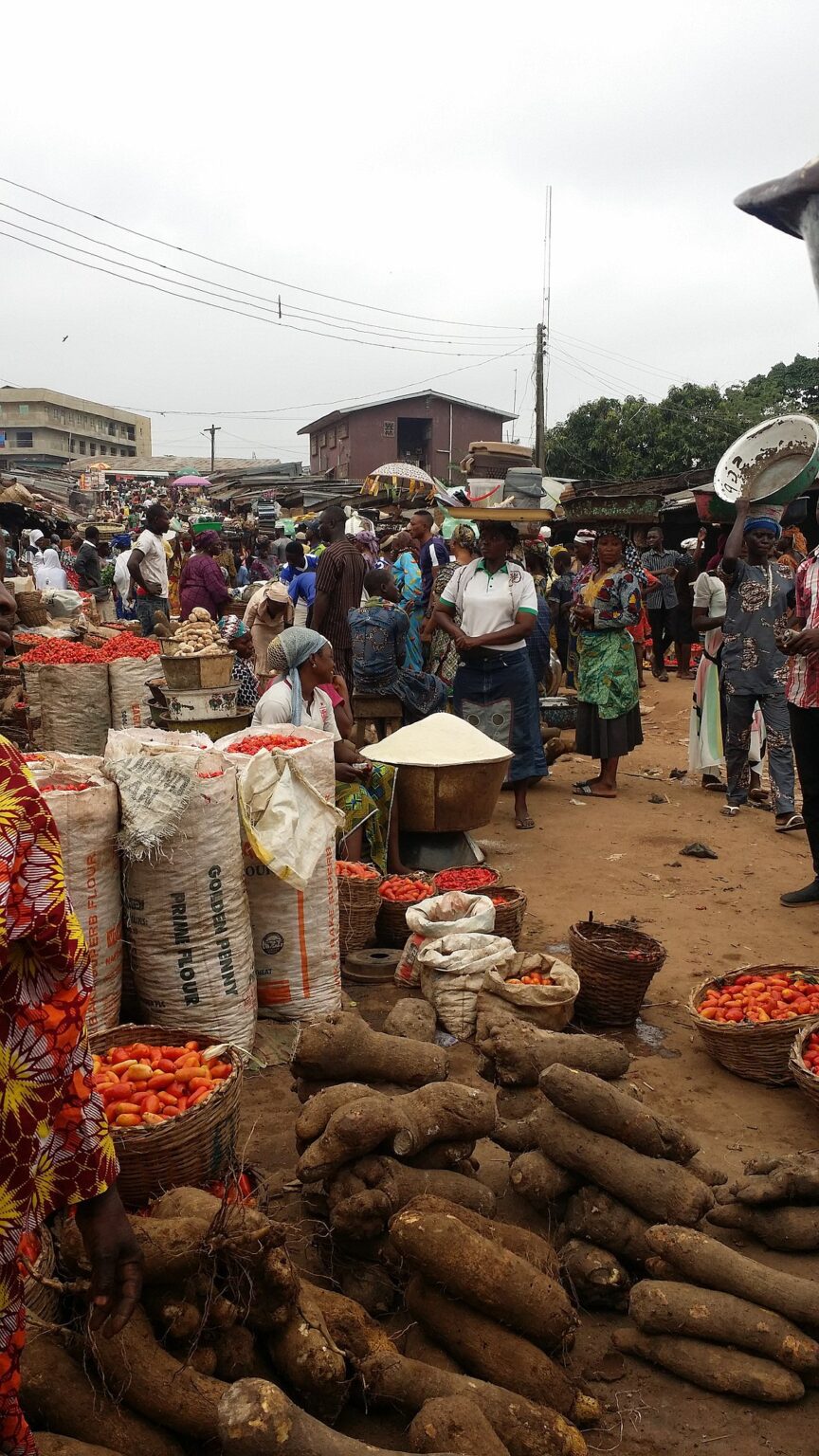A survey of the popular Bodija market in Ibadan, which is one of the popular food markets in the capital city of Oyo State, Nigeria, has shown that the cashless policy is eating hard into the revenue of farmers and traders. Traders, who sell mostly grains and some perishable food items are kicking against the cashless payment policy with the associated hardship that the Nigerian economy is currently going through.
Fish, meat and pepper sellers, especially are not embracing this alternative mode of business transaction, as much as grain sellers are. A middle aged woman, Saudat, who sells palm oil facing a fellow trader, with a concerned face said, “Not even one bottle, I have not sold one bottle since morning. Let me just see cash …” She looked on and kept persuading people to buy from her, ‘with cash’.
This FarmingFarmersFarms reporter had approached an Egusi (melon) trader, Ajoke and asked to buy a mudu (about 10 tin cups), which costs about N2,400. Upon hearing the inquiry of transfer, the middle-aged woman turned back lamenting how she would get to withdraw the money. “Bank is not attending to us. What do I want to do with the transfer? I have not sold anything since this morning. The egusi farmers don’t take transfer”, she lamented sharply in Yoruba.
“Cash is what I collect; I do not have a bank account. Elelubo (yam flour seller) does not collect transfer”, this was what this reporter encountered when she approached some women selling yam flour. Earlier, the ‘garri’ sellers in their stall also insisted on cash, stating that even if they accept e-payments, there was no way they could cash the money out to return back to villages and farms where they get their raw products from. Many of these traders continue to lament how individual purchasing power had been quite low due to currency swap and cashless policy.
Although some traders, who sell oil and kitchen needs such as seasonings and spices accept transfers, but many of them now demand extra charges ranging from N50 to N300 over goods purchased by a buyer. A pepper seller whom this reporter approached had liaised with a Point-of-Sale (POS) agent from whom the buyer will first have to collect cash in order to pay for the pepper bought. Similarly for fruit sellers, it is cash or nothing for cashew or banana or mangoes. By extension, the latest Supreme Court of Nigeria ruling for the disbursement of old naira notes into circulation, is causing another confusion. The traders, though desperate for cash, would prefer never to accept the old notes even though, banks are dispensing them.
An onion seller, Mama Felix that this reporter had approached said, “(President Muhammadu) Buhari never say anything, me I no fee collect old money o”. A frequent buyer at Bodija market, Miss. Melody Genesis (Melofibadan), who does market runs for people and also works as a chef and caterer while lamenting the stress and difficulties she had experienced trying to meet her customers’ needs, therefore, urged the Central Bank of Nigeria (CBN), to made cash available for citizens at no cost, in order to encourage small businesses to thrive. Meanwhile, many economists and concerned Nigerians have condemned the cashless policy, stating that it had negatively affected the most vulnerable members of the population, as cash is now being hoarded by few individuals.


